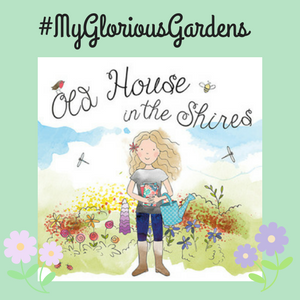
I was privileged to take part in the recent Health & Wellbeing Live event, where I spoke about Parenting Teenagers. For those who were unable to make it, I promised to condense my talk into a blog. Sadly, I can’t promise to re-enact my “live” performance, including jokes and anecdotes, but I will do my best to summarise the key points! But you could always book a discovery session with me by skype, to experience a little bit of live me!!
Firstly, a little weeny bit of background. I’m a Mother of 4 now grown up’s, (do they ever grow up!?) and I have been supporting and coaching vulnerable adults and teenagers in the Mental Health and Homelessness sector in my professional life. I decided to go solo at the beginning of this year to help parents navigate the demands and complexities of raising a family . I very much believe that all our struggles and troubles stem from the way we communicate with each other both consciously and unconsciously, and by helping families reframe communication, and understanding each other’s needs, relationships can be strengthened to withstand any challenges. My particularly bold mission statement is that by coaching parents and mediating in families, this will help:
- Reduce the increasing homelessness and suicide figures amongst young people in this small part of Kent.
- Reduce the development of Mental Health problems in our young people by helping parents know how to instill confidence and self belief in their children
- Support parents with the tools to manage challenging behaviours.
- Support and mentor young people to overcome self doubt and fulfil their dreams.
So now that the boring bit’s over, the talk went a little bit like this!
The Aims of the talk were:
- To enable you to feel more confident in dealing with teenage challenges by understanding the science behind the tremendous changes in the adolescent brain.
- To feel more connected with your teenager by seeing the whole person
- To shift our cultural perception that teenagers are a “nightmare” to a belief that adolescence is a stage of life not to “get over” or “endure”, but one to cultivate well.
How well do you remember your teenage years? It helps to take yourself back there sometimes to remember the the driving need to belong, to discover a sense of who you are, to feel comfortable in your own skin, and to find some form of approval and acceptance from others. Yes, times have changed and the challenges are very different from when we were young, but the core search for identity and belonging is the same, because of the way our brains are wired. So when your teenager throws the inevitable comment “you wouldn’t understand, life is different now”, you can agree but also acknowledge that you have the experience to empathise that the core struggles haven’t changed.
The word Adolescent stems from the latin “alere”, meaning to nourish and grow. I love this! When I was researching anecdotes for my powerpoint, I couldn’t find any postitive quotes about teenagers, which not only saddens me but is also indicative of our cultural subliminal messages , which if we are not careful, can become the inner voice of our young people. Yes, the teenage years can bring challenges in terms of experimentation and pushing against the boundaries, but it’s also a time when our children become really really interesting people. It’s a time when we can walk alongside them, finding new ways to connect in alignment with their developing personas and “embrace” the tremendous changes that are going on in their brains. If we view this time as a stage to get over, we miss the opportunity to cultivate it well.
So first of all to understand the science bit, there are a few myths that need busting.
- Hormones: hormones are responsible for changes in behaviour. Yes, to some extent they are, but not fully, it is also what is going on in the brain as a result of hormonal surges. The stimulation part of the brain is highly sensetised during hormonal surges, which increases the production of Dopamine, the neuro transmitter that is responsible for our increased drive for rewards, pleasure, and new experiences.
- It isn’t simply immaturity v maturity. It’s not just a case of needing to “grow up”
- Strive for total independence: They are chomping at the bit, but deep down they need you more than ever.
So what is actually happening: The Pathway to the future is what is happening! The changes that are happening in the neural pathways are necessary and fundamental in preparing teenagers to become resilient, happy and fully functioning adults. That’s want we all hope for as parents right? To put it into layman’s language, as I’m not an expert Neuro-Scientist, but Mr Dan Seigal is. So the following facts are taken from his books.
We used to think that the main brain development took place in the 1st 5 years, but neuro-scientists write a lot about the brain’s plasticity. During the teenage years, the brain sheds what it hasn’t used and circuitry concentrates on firing upto connect the pre-frontal cortex with the limbic system, the pre-frontal cortex which is responsible for logic, language, planning, organising, time-keeping and the limbic system, responsible for our emotional regulation is not fully connected until we are in our 20’s. Once we understand this, we can begin to understand why all those sports kits are left at the bus stop, why plans are not formulated until the last minute and why school bags can’t be packed the night before!
We can also begin to understand because the self regulatory system is still developing why everything’s always a drama for girls! But also it’s as if a recording device has been tuned up to a new level of sensitivity, which results in the emotional intensity. The teenage brain is acutely absorbing so many new thoughts and feelings about what is going on around us. It’s a time when emotional storms are common, which result in a distorted map of reality, and often poor decision making as a result. I’m sure you have observed times when your teenager seems to be living their lives through a repeated cycle of dramas with friends. Social engagement with peers becomes a priority, which can accompany withdrawal from us. It’s important to not react to this as personal rejection. We can also interpret moodiness as personal rejection, but teenagers need time alone to process, evaluate and reflect upon what is going on around them, this helps them form their opinions and values. It’s also a time when they can creatively explore and question the world, thereby identifying their role in it, so quiet time (as long as it’s not long periods of isolation) is really crucial.
So the potential changes in behaviours being:
The desire to partake in new experiences (risky) , pushing boundaries, moodiness, emotional outbursts, lack of motivation, procrastination, argumentative or disrespectful communication, the upside is that these are actually stages that are necessary in order to enter adulthood. As I mentioned, the changes and new behaviours, experiments, questioning/arguing and strive for independence are necessary pre-lims for entry into healthy adulthood. So the end result is probably all the precursors for wellbeing that we would want for our children.
- Novelty Seeking therefore promotes the ability to live passionately, having a sense of adventure, being open to change and having Courage.
- Social Engagement: Promotes the ability to create new friendships and supportive relationships. This is the greatest predictor of wellbeing.
- Emotional Intensity: Promotes the ability to live life fully. To develop emotional regulation and resilience.
- Creative exploration: Promotes the development of new skills, to produce new and innovative ideas . The ability to make change.
How can you manage negative and testing behaviours in a way that you Engage, not enrage?
The key fundamentals are Communication and your relationship. We are all hard-wired for connection, and although your teenager is sending you mixed messages, not wanting a hug anymore, or not wanting to go on holiday with you anymore, deep down, they need you still just as much, but they are just re-defining the terms, and the changes in the brain are preparing them for independence. One thing young people still need from us is security through boundaries, even though they are pushing against them. But you can manage this by adapting your parenting stance from authoritarian to authoritative , throwing in some coaching style too. By seeking and discussing solutions together, battles can disappear as your teenager will feel listened to , heard and respected. This gives a strong message that your relationship is important to you.
Some tips for resolving conflict:
- Name it to tame it. (Dan Siegal) .All confrontation, disrespect and poor behaviour is fuelled by unmet needs, and are expressed through anger, frustration, sadness, jealousy and anxiety. So identify the need and acknowledge to your teenager that you are listening to how they feel and validate their feelings, but re-affirm that it’s not ok to take it out on you or their siblings. If emotions are running high, the now maybe not the time to address it, but you can let them know that you are around when they would like to talk. Sometimes food or sleep is the answer!
2. Don’t over-react or join in the drama. Acknowledge how you are feeling. Do you need peace and harmony at the end of a long day?
3. Don’t attempt to rationalise or control when tempers flare. Allow space and time to breathe….for yourself and them. Re-connect to correct if appropriate, or apologise if appropriate (if you have lost it!). Be the role model.
4. Make them aware of your non-negotiables and be clear and consistent with the boundaries around them. Discuss the reasons why they are non-negotiable. Are your non-negotiables still age appropriate though? Always re-evaluate and explain why.
5. For those situations which are causing stress for everyone in the family, have a joint discussion to get everyone’s opinion on how things could be improved. This re- inforces that everyone’s opinion is respected and valid.
6. In times of heated emotions, consider, is there a problem, or is it just BIG emotions. Is there actually something to solve. Beware of attempting to fix (this smacks of helicopter parenting!
A good acromym to remember is STOP:
S Stop to Breathe
T Take a Breath
O Observe the emotion. Label it
P Proceed with logic.
So to conclude: What else can help? Apart from understanding what is going on in that wonderful, tumultuous teenage brain?
Through re-framing your interactions and communication mutual trust and respect is built .
By listening and validating their opinions, be excited that your teenager will have ideas that this ever-changing world needs. The world needs, creative thinkers with a big voice.
Give them room to take risks, by loosening the rope slowly as to what you deem age approriate. This will result in steering them away from high risk activities.
Encourage activities that engage body and mind: Sport, yoga, Music, Art and Mindfulness.
Put boundaries in around sleep. Teenagers need a lot more sleep than adults – the recommendation is 12 hours. So no wonder they are tetchy getting up early for school! My children were only allowed out at the weekend once, even when they were sixth-formers, a friday night or Saturday night. This ensured that they didn’t miss out on valuable sleep time.
The adolescent years are a time to encourage, enjoy and nourish a flourishing individual.
- “When you plant lettuce, if it does not grow well, you don’t blame the lettuce. You look for reasons it is not doing well. It may need fertilizer, or more water, or less sun. You never blame the lettuce. Yet if we have problems with our friends or family, we blame the other person. But if we know how to take care of them, they will grow well, like the lettuce. Blaming has no positive effect at all, nor does trying to persuade using reason and argument. That is my experience. No blame, no reasoning, no argument, just understanding. If you understand, and you show that you understand, you can love, and the situation will change”
-Thich Nhat Hanh
This is a condensed version of the talk so if you would like any support, more information or have any questions in relation to this post, please contact me through the contact page on my website: http://thewellerway.co.uk.
I also offer a free discovery skype session because I love teenagers!!
Thank you for reading this and showing interest in my talk.
















